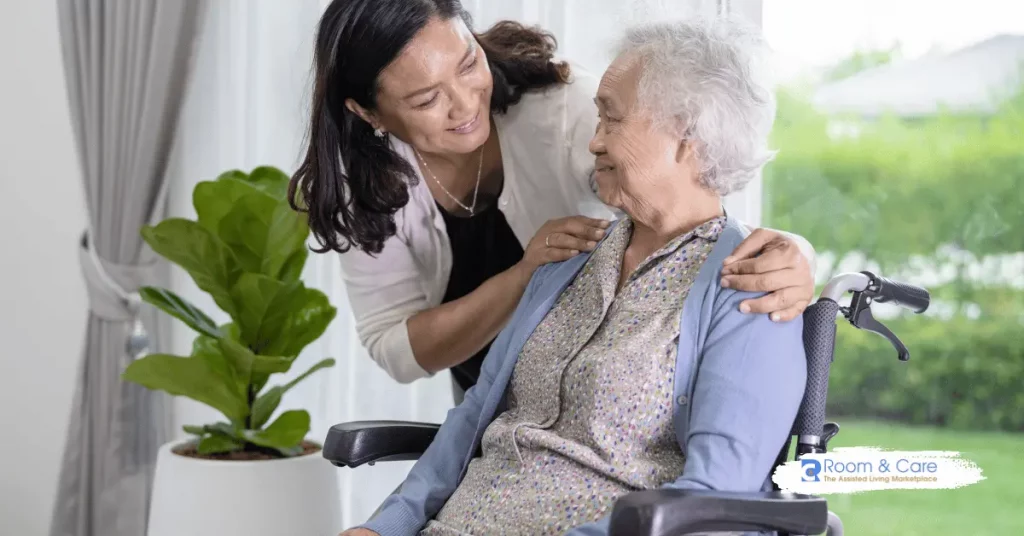

Caregiving for elderly parents is one of the most challenging yet fulfilling roles many people take on as their parents age. The journey can be emotionally demanding and physically exhausting, but it’s also an opportunity to give back to those who once cared for us. Whether you are providing care at home or considering senior living options, such as adult family homes, assisted living facilities, or nursing homes, having the right information and support is essential.
In this guide, we’ll explore key aspects of caregiving, discuss practical tips and strategies, and provide answers to frequently asked questions. We’ll also touch on how senior living communities can provide valuable assistance for those who can no longer manage caregiving on their own.
Being a caregiver for elderly parents requires more than just physical assistance. It involves emotional, psychological, and even financial responsibilities. A caregiver’s role is multifaceted and often extends beyond basic tasks such as cooking, cleaning, and helping with personal hygiene. It also includes managing medical appointments, medications, and offering companionship.
Each elderly parent’s needs are unique. Some may need help with daily activities, while others may require medical care for chronic conditions or cognitive challenges like dementia. The role of a caregiver evolves over time as the needs of the parent change, making flexibility and adaptability essential traits for caregivers.
For many families, caregiving becomes a balancing act between personal life, work, and other responsibilities. Without proper planning and support, it can lead to caregiver burnout, stress, and health issues. This makes it crucial to understand the scope of caregiving and to seek help when needed.
The first step in caregiving for elderly parents is to assess their specific needs. This process helps determine the level of care required and whether you’ll need external assistance. Some of the key areas to evaluate include:
Can your parent perform activities of daily living (ADLs), such as bathing, dressing, or eating, without assistance? If they struggle with any of these tasks, they may need help either from you or professional caregivers. Additionally, if they have mobility issues, such as difficulty walking or getting out of bed, you may need to modify their living environment with ramps, handrails, or stairlifts to ensure safety.
Cognitive health is another critical area to assess. If your parent shows signs of memory loss, confusion, or disorientation, it could indicate the onset of dementia or Alzheimer’s disease. Cognitive decline often requires specialized care that might be difficult to provide at home.
Emotional well-being is just as important as physical health. Loneliness and isolation can severely affect elderly individuals, leading to depression or anxiety. As a caregiver, it’s important to engage with your parent socially and ensure they have opportunities for interaction, whether through family, friends, or community programs.
Many elderly individuals require ongoing medical care and regular medication. Keeping track of doctor appointments, medication schedules, and health conditions can be overwhelming for caregivers. Establishing a clear system for managing these aspects is vital to avoid complications or missed medications. Creating a medication chart or using apps designed for caregiving can help streamline this process.
Is your parent’s living environment safe? Assessing the safety of the home includes looking at potential hazards like loose rugs, inadequate lighting, or a lack of grab bars in bathrooms. Simple modifications, such as installing handrails or removing tripping hazards, can prevent falls and injuries. In some cases, it might be necessary to explore more significant changes, such as moving your parent’s bedroom to the ground floor or transitioning to a senior living community where safety features are standard.
A well-thought-out care plan is crucial for effective caregiving. This plan should be tailored to meet your parent’s needs and preferences while also considering your ability to manage those needs. Here’s what to include in a care plan:
Developing a care plan is an ongoing process. As your parent’s needs change, be prepared to revise the plan accordingly. It’s also a good idea to involve healthcare professionals and other family members in creating and updating the plan.

Caregiving for elderly parents can be physically exhausting and emotionally draining. Without proper support, caregivers can experience burnout, depression, and health problems. Recognizing the signs of caregiver stress and taking proactive steps to manage it is essential for both your well-being and your ability to provide care.
If you’re experiencing these symptoms, it’s time to take a step back and focus on self-care. Caring for yourself is just as important as caring for your parent. Here are some strategies to help manage stress:
If caregiving becomes too overwhelming, it might be time to explore professional care options, such as in-home care services or senior living communities.
As your parent’s needs increase, you may find that caring for them at home is no longer sustainable. In such cases, senior living communities can provide the level of care and support that your parent needs. There are several types of senior living options to consider:
Adult family homes offer a more intimate, home-like environment where a small group of elderly residents receives personalized care. These homes are ideal for seniors who need assistance with daily activities but prefer a cozy, family-style living arrangement.
Assisted living facilities provide a balance between independence and support. Residents have their own living space but have access to help with tasks such as bathing, dressing, and medication management. These communities also offer social activities and opportunities for residents to engage with others, promoting mental and emotional well-being.
For elderly parents with dementia or Alzheimer’s, memory care facilities offer specialized services to manage cognitive decline. These facilities provide 24-hour supervision, structured activities, and therapies designed to slow cognitive deterioration while ensuring a safe and supportive environment.
Nursing homes are designed for seniors who require round-the-clock medical care. These facilities have skilled nursing staff who can manage complex health conditions and provide rehabilitation services. Nursing homes are often the best option for individuals with serious health issues who need ongoing medical attention.
At Room and Care, we simplify the process of finding the right senior living community for your parent. Whether you’re looking for an assisted living facility, adult family home, or memory care, we provide direct access to top-rated facilities with no referral fees or middlemen, ensuring transparency and affordability.
Caregiving for elderly parents can be expensive, and understanding the financial implications is crucial for long-term planning. Here are some of the costs to consider:
There are several financial resources available to help with caregiving costs, including:
It’s important to plan for these costs early and explore all available financial resources.
In addition to the physical and emotional aspects of caregiving, there are legal matters to address. Preparing legal documents in advance can prevent confusion and conflict later on. Some key documents to consider include:
Having these legal documents in place ensures that your parent’s wishes are honored and reduces the likelihood of disputes among family members.

How do I manage caregiving when I have other responsibilities?
Caregiving can be overwhelming when you have other responsibilities such as work or family. Consider hiring in-home caregivers, seeking help from family members, or exploring senior living options to share the load.
When is it time to move my parent to a senior living facility?
If your parent’s needs have outgrown your ability to provide care or their health condition requires constant medical attention, it may be time to consider senior living. Facilities like assisted living or nursing homes offer the support and care needed to ensure your parent’s well-being.
How can I keep my parent socially engaged?
Social isolation is a common issue among elderly individuals. Encourage your parent to participate in community activities, visit senior centers, or move to a senior living community where they can interact with peers.
Caring for elderly parents is a rewarding yet demanding responsibility. It requires a thoughtful approach, clear planning, and support from others to ensure your parent’s well-being. From managing daily routines to exploring senior living communities, understanding the full scope of caregiving will help you make informed decisions.
At Room and Care, we are committed to helping families find the best senior living options. Whether you need an assisted living facility, adult family home, or nursing home, we offer a transparent process with no referral fees, ensuring you get the best care for your loved ones without hidden costs.